If it can, what should you do about it?
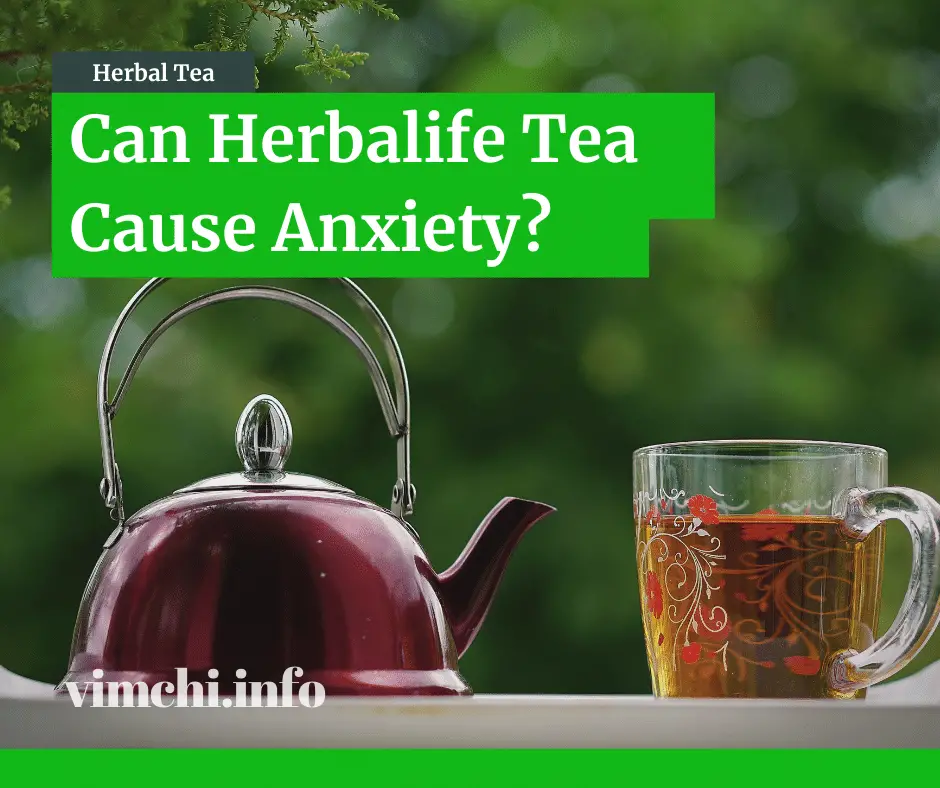
Herbalife tea is a safe product. However, if you have a medical condition, you need to consult your doctor before taking this tea. Side effects in taking this tea may occur. But they are rare. So, can Herbalife tea cause anxiety?
What are the possible reasons Herbalife Tea May Cause Anxiety?
I take Herbalife tea once or twice a week but I never experience feeling anxious. But I won’t dismiss the fact that this tea and other herbal teas can have some side effects on people.
Each person is different. If one person has experienced side effects, like emotional distress, pain, and anxiety, after drinking this tea, it doesn’t mean that you’ll experience them too.
It could be that the person who feels anxious after drinking Herbalife tea or other teas has already been diagnosed with anxiety disorders.
When you’re anxious, you’ll feel dread or uneasy. You’ll sweat and feel tense. A rapid heartbeat may also occur.
It’s true that when you take Herbalife tea, you’ll sweat. That’s because this tea contains fat-burning effects.
Furthermore, this tea contains caffeine. It’s one of the ingredients of Herbalife Concentrate tea.
Caffeine is known as a psychoactive substance. And it’s another reason you’ll sweat when you drink this tea because the caffeine in it mobilizes fats from your fat tissues. In other words, it boosts your metabolism.
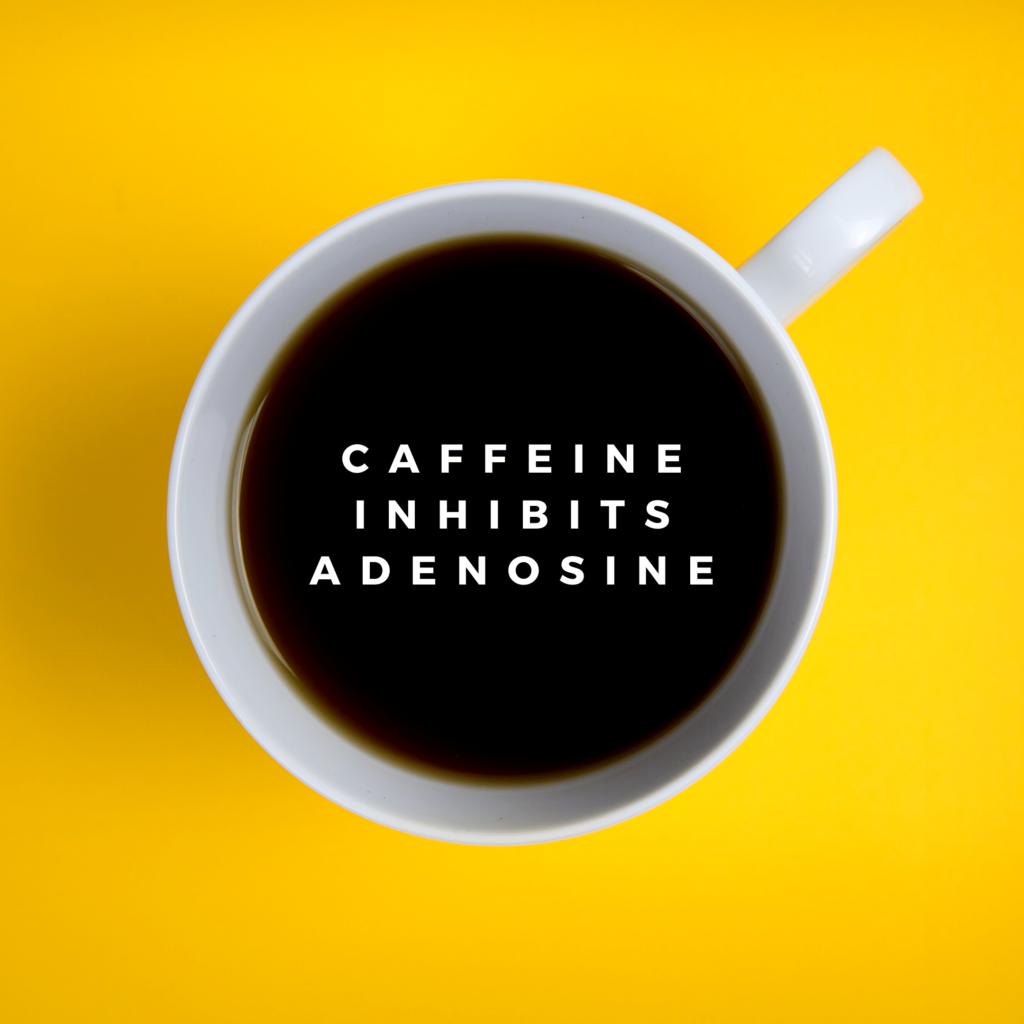
Caffeine is known to inhibit adenosine. It’s an inhibitory neurotransmitter. By inhibiting it, it triggers the release of norepinephrine and dopamine so you’ll feel more energized.
There are only a few herbal teas that are void of caffeine. These would include chamomile, peppermint, and ginger, among others. Because of their lack of caffeine content, you can drink them before bedtime.
Can the Caffeine in Herbalife Tea Cause Anxiety?
If you have a low tolerance to caffeine, then you’re likely to feel anxious when you drink Herbalife tea and other herbal teas with caffeine.
When you over-consume caffeine, it may lead to feelings of stress, anxiety, and restlessness. Herbalife tea has approximately 85 mg of caffeine. In that case, it can’t cause anxiety if you drink just a cup or two per day.
Drinking caffeine over 200 mg a day can cause significant anxiety in most individuals but not all. Then again, if you’re sensitive to caffeine’s effects, then you should consider limiting your intake or avoid it as much as possible.
If you drink too much caffeine, you will have a problem getting enough sleep. Excessive caffeine intake can disrupt your sleep cycle.
Some studies showed that caffeine inhibits melatonin production. Melatonin is an important hormone that tells your brain that it’s time for you to sleep. If its production is disrupted for some reason, you will experience poor sleep quality.
The lack of sleep can cause anxiety. It also leads to impaired memory, fatigue, and reduced attention span. Chronic sleep deprivation can increase your risk of becoming obese and develop diabetes.
It’s not easy to know how caffeine affects sleep patterns in every person because people metabolize it differently. In some studies, researchers found that those who took 200 mg of caffeine 6 hours before bedtime still had a problem getting enough sleep. Other studies, on the other hand, didn’t observe significant effects.
If you have experienced poor sleep quality because of drinking caffeinated tea, you should avoid it or reduce your caffeine intake.
Caffeine Makes You Jittery and Nervous
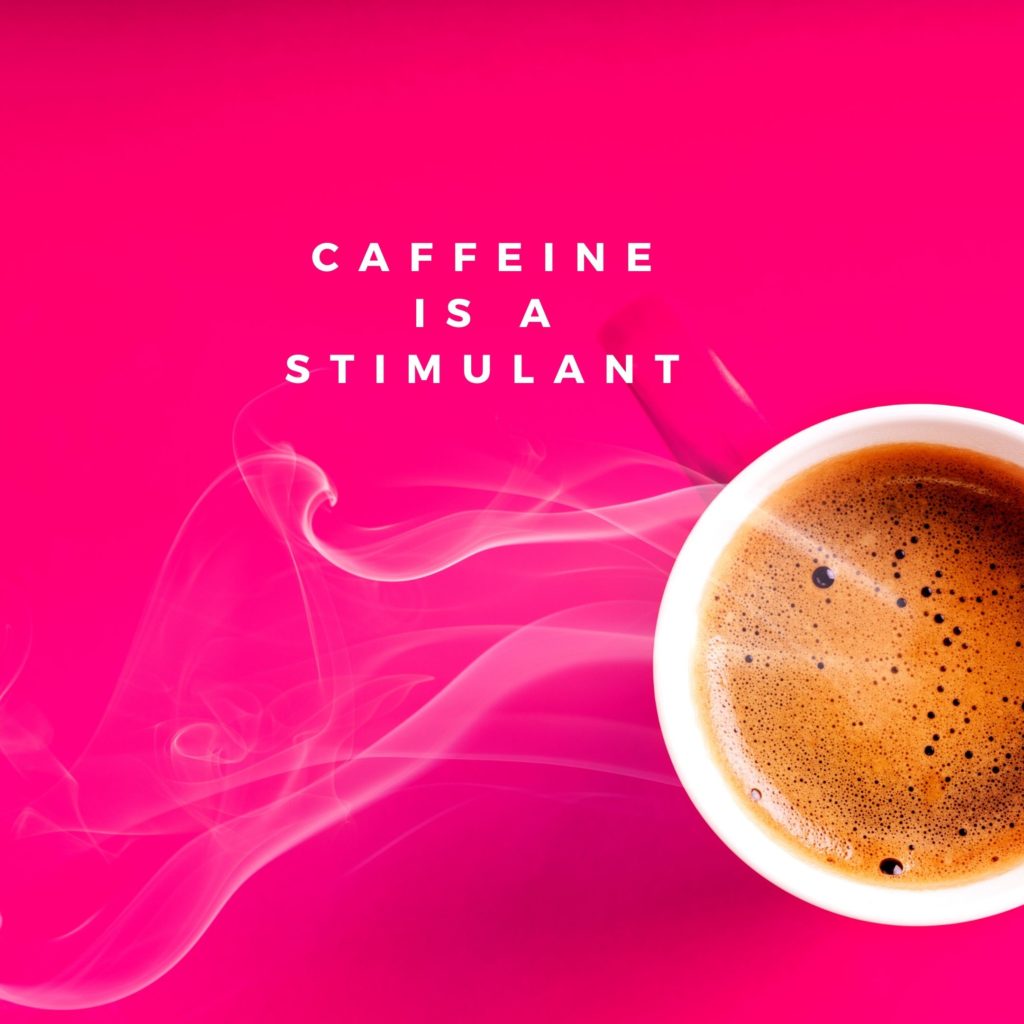
Since caffeine is a stimulant, it’s not something that you would want to drink when you have an anxiety disorder. The jittery effects of caffeine can be likened to experiencing a frightening event.
The reason for this is that caffeine triggers your fight or flight response. And if you have an anxiety disorder, caffeine can make it worse. That said, if you have this type of disorder, you just have to avoid Herbalife tea and other caffeinated drinks.
Are You Taking Medications?
Herbalife tea may interact with some medications. And if you’re taking certain medicines, you may experience anxiety symptoms when you drink Herbalife tea. You should avoid caffeinated drinks altogether if you are taking asthma drugs and thyroid drugs.
Thyroid Issues
Your thyroid gland produces thyroid hormones that are vital in regulating your energy levels and metabolism. If this gland produces too many hormones, it can trigger anxiety symptoms, like heart palpitations, nervousness, and sleepness.
Hence, if you are suffering from thyroid issues, your doctor may recommend avoiding caffeinated drinks, like Herbalife tea.
Stress and Anxiety
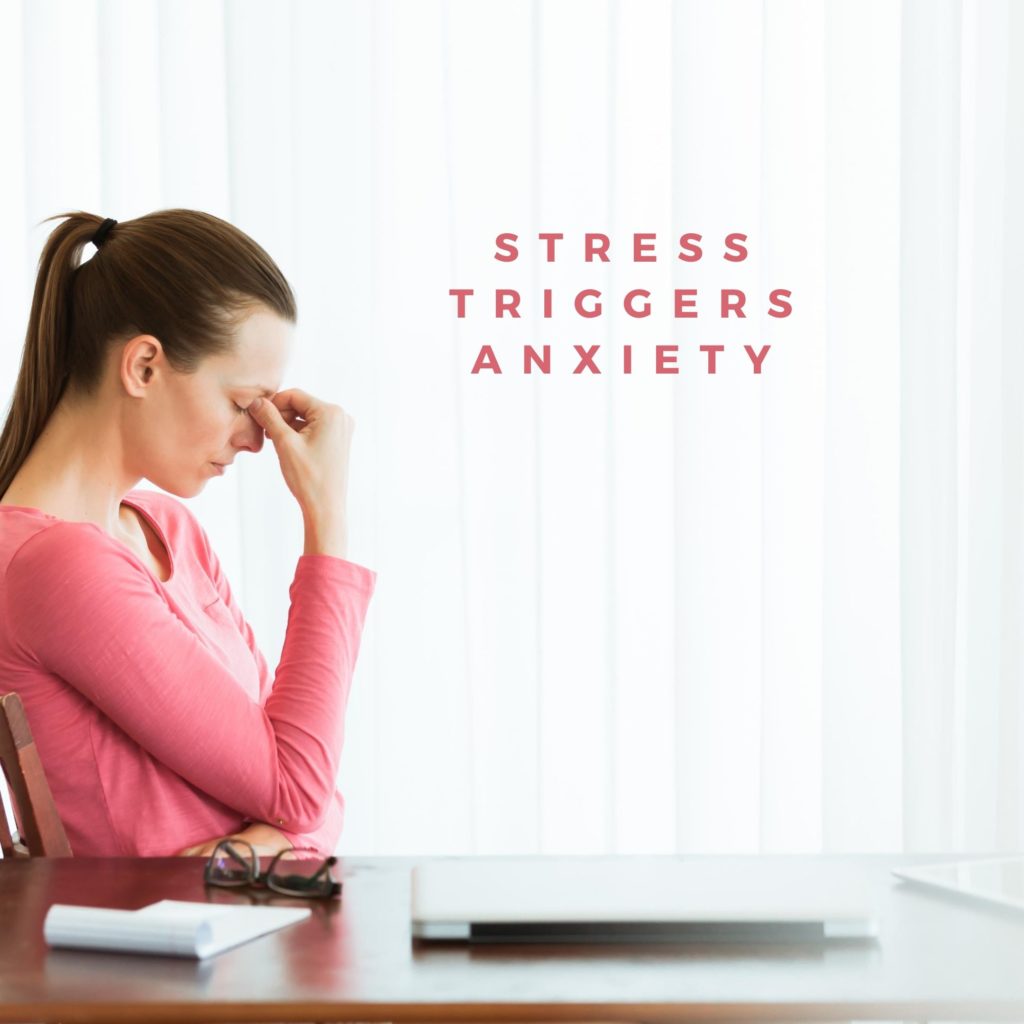
Stress can trigger anxiety. If you are already stressed and you drink a caffeinated beverage, your stress level would go up along with your anxiety symptoms.
However, some people consider caffeinated drinks as a stress buster. That’s why they drink coffee and herbal tea to relieve their stress, thereby, relieving their anxiety symptoms.
Then again, every person is different.
Adding Something to Herbalife Tea
Some people are fond of adding milk to their tea. But this is bad news for you if you are lactose intolerant. In research, it showed that people with anxiety noticed an increase in their symptoms minutes after taking dairy products.
Lactose intolerance occurs in 10 percent of adults. Furthermore, more adults have difficulty digesting casein in cow’s milk.
Dairy is inflammatory. It can disrupt your digestive system. it causes bloating and other things. That said, if you have anxiety issues, avoid herbal tea and milk.
Drinking tea on an Empty Stomach
Several experts recommend drinking tea on an empty stomach. However, if you have heartburn, you must avoid it. Drinking caffeinated tea may trigger heartburn. GERD may cause anxiety and depression.
In that case, if you’re prone to heartburn, you must not drink Herbalife tea on an empty stomach. I drink it after a heavy meal but I only consume it 30 minutes after eating.
What to Avoid When You Have An Anxiety Disorder?
If caffeine makes you jittery and anxious, you must avoid any caffeinated beverages. It means that Herbalife tea and other teas may not be right for you.
But it’s not only caffeine that you must avoid. You should also stop drinking alcohol. Drinking alcohol can increase anxiety symptoms. That said, if you’re tempted to drink a glass of wine during stressful situations to calm your nerves, just don’t.
Having a glass of wine might help in easing your anxiety. But it can have serious consequences. Alcohol worsens anxiety symptoms because it alters the serotonin and other brain’s neurotransmitters. It’s one of the reasons you feel more anxious once the alcohol wears off.
Another drink you must avoid when you’re prone to anxiety is regular soda. Most soda has caffeine. Plus, it has a high amount of sugar. Soda is a sweetened drink that is linked to depression. If you’re craving for it, consider drinking seltzer water instead.
What if it’s a diet soda? It’s still a soda. Although this type of soda doesn’t cause an energy crash, it will still make you depressed. Why? It contains caffeine, which can be bad for your anxiety.
Any energy drink can be bad for you as well. It causes not just anxiety but also sleep issues and irregular heart rhythms. Energy drinks contain a high amount of caffeine. If you can’t find caffeine in the label, look for guarana. This, too, is loaded with caffeine.
Skip Hydrogenated Oils
They’re bad for your anxiety. Stay away from fried chicken, fried calamari, and French fries. These foods are deep-fried. And deep-frying is typically done in hydrogenated oil. Hydrogenation transforms vegetable oil into solid. If you cook food with hydrogenated oil, it can contribute to depression.
Avoid Soy Sauce
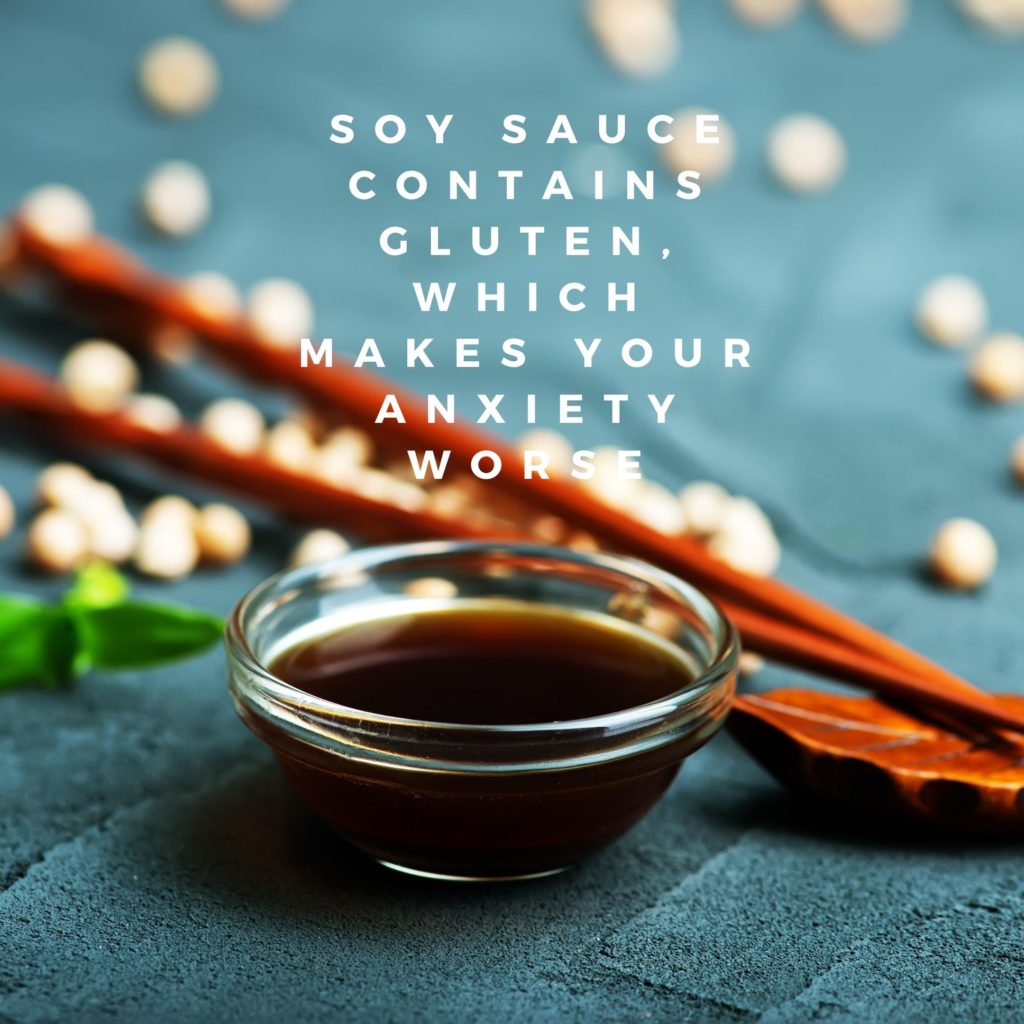
If you can’t tolerate gluten, then you should avoid soy sauce. It can affect your digestive system. Your body can only digest gluten partially. As a result, it leads to gut irritation and allergic reactions. Studies showed that there’s a link between depression and gluten.
In another study, it showed that humans who consumed gluten for six weeks reported that their anxiety got worse.
No to Tofu
Tofu is loaded with lean protein. But it’s made of soy that’s packed with trypsin and protease inhibitors. They are enzymes that make protein extremely difficult to digest.
Furthermore, soy is high in copper. It’s a mineral that’s also linked to anxiety behavior. Plus, it has a high amount of oligosaccharides that can lead to flatulence.
If you want to eat soy, don’t opt for tofu. Instead, look for miso and tempeh.
Stop Drinking Apple Juice
Juices don’t have slow-digesting fiber. But they are packed with refined fructose. Because of this combination, juices can cause a blood sugar spike that can activate the release of adrenaline. This results in you experiencing panic attack symptoms.
Apple juices contain a lot of fructose that can change how the brain reacts to stress. Furthermore, many apple juices have arsenic content. It’s a toxin that causes anxious behavior. It also worsens depression.
Easing Your Anxiety
Anxiety is a common mental illness. Depression and anxiety go hand in hand. Half of those who experience depression have anxiety symptoms. Some therapies and medications can alleviate anxiety symptoms. However, not all patients seek treatment.
Thankfully, your diet can play an important role in managing your anxiety. For instance, if caffeinated drinks trigger your anxiety, then make sure to avoid them.
Opt for complex carbs because your body digests them slowly. It results in having even blood sugar levels. It gives you a calmer feeling.
Choose to eat whole grains, fruits, and vegetables, instead of consuming simple carbs.
Up your magnesium intake. In an animal study, it showed that mice low in magnesium were found to have anxiety-related behaviors increased. If you eat a lot of foods high in magnesium, then you will feel calmer. That said, opt for leafy greens, especially spinach.
Consider foods high in zinc as well. They would include cashews, liver, beef, and egg yolks. They are said to lower anxiety.
Choose food containing omega-3 fatty acids, like salmon. In a study, it showed that foods with omega-3s could help in reducing anxiety. Before the said study, researchers found that omega-3 fatty acids could only improve depression. But it’s not the case with this study.
Exercise and Anxiety
Physical activity can affect you. Various studies showed that aerobic exercise can help alleviate anxiety symptoms. A brisk walk for 30 minutes can be powerful enough for patients with chronic anxiety. Thus, if you’re feeling nervous or anxious for whatever reason, go for a walk.
Exercise will divert you from the things that make you anxious about it. Furthermore, exercising cause you to move your body, thereby, lowering muscle tension, which contributes to feeling anxious.
If you do yoga, for instance, you’re focusing on your breathing, allowing you to let go of your fear and worry. It helps you relax and gain a sense of calm. With yoga, you will recognize your feelings and actions. As you attend yoga class, you will learn how to regulate your stress response. You will also know how to build resilience to stress.
Another powerful exercise to ease your anxiety is Pilates. It’s a low-impact exercise with plenty of health benefits. With it, you will learn how to control your body. If you’re not sure how to start Pilates, you may enroll in virtual classes, like the ones offered by Karen Lord Pilates Movement.
Wrapping Up
Can Herbalife tea cause anxiety? It depends. If you have a low tolerance to caffeine, then you may experience anxiety as a side effect after drinking Herbalife tea. But please note that not all drinkers of this tea experienced it.
If you wish to know more about the effects of Herbalife tea on your body, please visit our in-depth review. Or message us to share your experience with Herbalife tea. Did it cause you to be anxious with no reason at all? Tell us about it.
Speak Now ... Or Forever Hold Your Peace